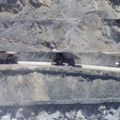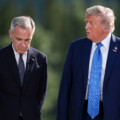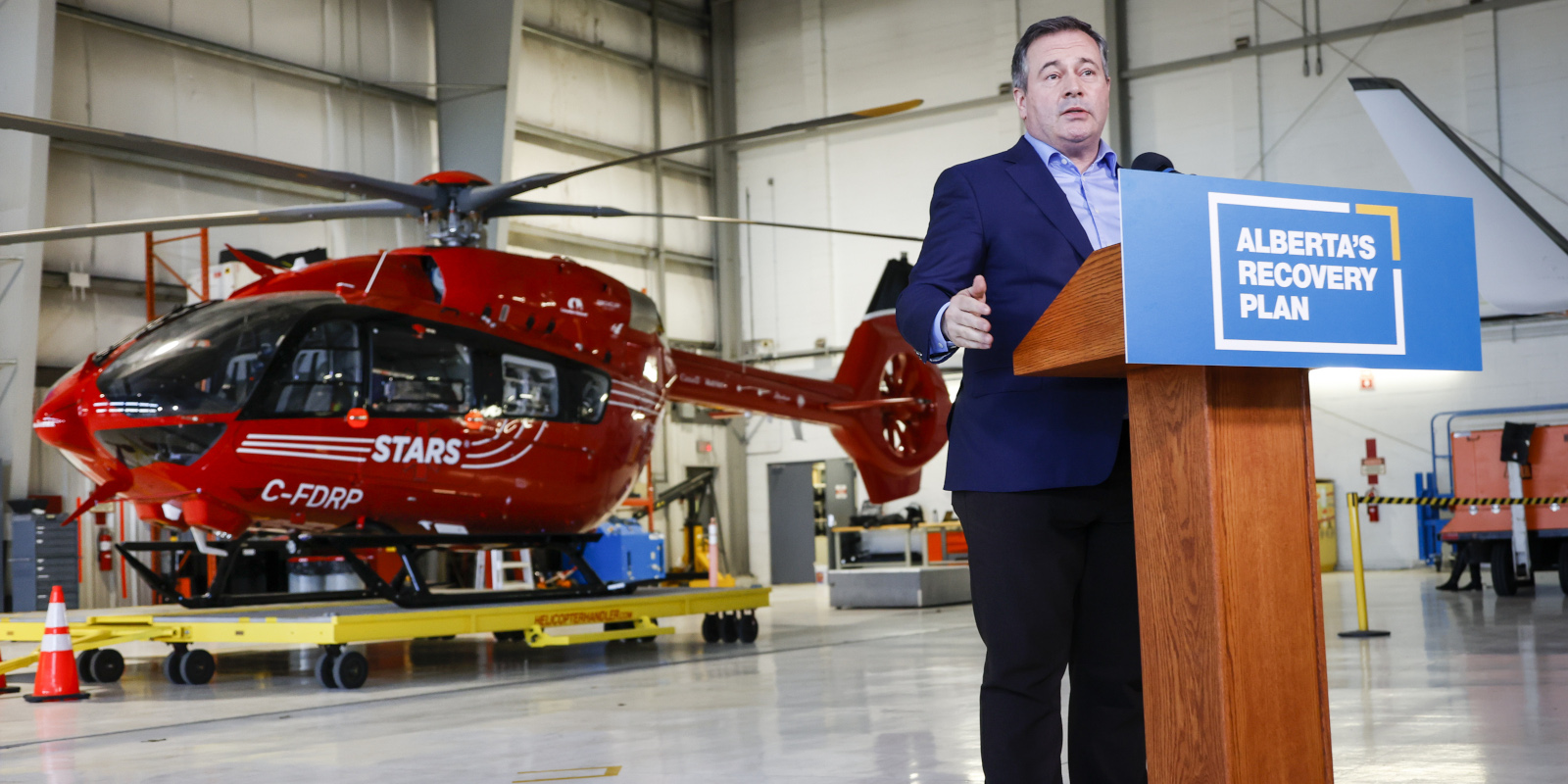Since coming to power in 2019, Alberta Premier Jason Kenney may be inclined to paraphrase John Lennon: government is what happens when you’re making other plans.
And Jason Kenney’s United Conservative Party had a lot of plans.
After coming to Alberta politics with the intention of campaigning on reform conservatismAccording to reform conservative Ross Douthat: “The core economic challenge facing the American experiment is not income inequality per se, but rather stratification and stagnation — weak mobility from the bottom of the income ladder and wage stagnation for the middle class.” https://douthat.blogs.nytimes.com/2013/05/30/what-is-reform-conservatism/ and policies to improve social mobility, Kenney called an audible before the 2019 election and shifted to some old-fashioned supply-side economics.
In a rare move, Kenney highlighted his plan for corporate tax cuts in the campaign because polling showed voters liked the idea“‘It was like, shocking, Kenney said in an interview with the Post. ‘I was even shocked. It was like 70-30 in favour of this. There’s like 25 per cent of the population that wanted us to go deeper, wanted us to go to a 50-per-cent reduction in the business tax rate.'” https://nationalpost.com/news/politics/inside-jason-kenneys-plan-to-kickstart-albertas-economy-and-heal-the-provinces-divisions of attracting investment and jobs to the province. NDP leader Rachel Notley attacked the idea as a corporate giveaway at a time when Alberta schools were desperate for funding.
The UCP also promised a department designed to cut red tape and a renewed focus on labour mobility that would help Albertans train for the new industries that would flock to the low-tax, business-friendly environment that Kenney hoped to create.
Either Kenney’s audible was the correct call, or Albertans were so desperate for change that it didn’t matter. After winning a landslide victory, the UCP government got to work slashing corporate tax rates by a third and cutting red tape. It embarked on a spending review that promised to be politically painful but would return the government’s expenditures to something approaching the Canadian average.
In the four-year mandate, the plan was for two politically difficult years followed by economic clouds parting, revealing a world of surpluses and economic growth. By then, the UCP hoped voters would be ready to reward them with a second term.
But two months after the 2019 budget was unveiled, the first case of COVID-19 would appear in the Chinese city of Wuhan. The pandemic soon ripped across the globe while the government was making other plans.
United Conservative Party members will begin casting ballots for Jason Kenney’s leadership review on April 9, the culmination of two years of political strife mostly brought about by the measures to contain the COVID-19 pandemic. The deadline for ballots is May 11 and the result will be announced on May 18.
The review asks a simple question: do you support Kenney staying on as leader of the UCP or not?
Grassroots conservatives, mostly enraged by what they see as government overreach in shuttering businesses, bringing in mask mandates, and closing schools, are organizing fiercely to bring Kenney down.
A recent poll by Mainstreet Research drilled down into provincial poll numbersThe poll shows the NDP with 38 percent support and the UCP with 33 percent support across all respondents. https://old.ipolitics.ca/wp-content/uploads/2022/04/Alberta-March-2022-iPolitics.pdf to get a sense of how UCP members are planning to vote in the leadership review and found that 48 percent don’t want Kenney to continue as leader and 47 percent support the leader.
That razor-thin margin means that organizational effort will be vital, as both sides scramble to get out the vote.
If Kenney doesn’t survive the leadership review he could see it as a case of colossal bad timing, as his economic luck turns and several of his flagship policies begin to show signs of success.
The government’s plans inspired curiosity, and some outright support, from economists during the election campaign, especially due to the dire economic conditions.
These policies are just as applicable now as they were in 2019, said Kenney.
“I actually think the policy we articulated… during the election has turned out to be prescient,” said Kenney, in an interview with The Hub last year. He says the mood in 2019, when Albertans were pulling themselves out of a recession, is similar to the post-COVID mindset.
“I think broadly, that mood is there, because people desperately want economic growth and recovery. It’s been four or five tough years,” said Kenney. “We basically lived through two concurrent recessions, the global economic COVID recession and then the collapse in energy prices. So we have to make up a lot of lost ground in terms of jobs and investment. And that’s actually where I think a policy setting is right on the money.”
Kenney’s interview with The Hub came long before the roaring inflation of 2022 and the Russian invasion of Ukraine, which has spiked oil prices to unbelievable levels.
Even the Alberta government’s budget, which was released in late February, contains oil price estimates that are now massively out of date. The government is assuming oil prices of $70USD per barrel in its projections and, at the time, University of Calgary economist Trevor Tombe wrote that an estimate of $85USD would have been defensible.
If the government had used that increased estimate, it would have reported a projected surplus of $8 billion. Now, oil prices have ballooned over $100USD per barrel, meaning the royalties will continue to pour into the Alberta government’s coffers.
With a federal budget being revealed Thursday, this will also have implications for the federal government, which has launched a new national child care program and made big promises on dental and health care. Tombe estimates that a $30 per barrel increase in oil prices leads to a $5 billion decrease in the federal government’s deficit.
The government’s cost cutting, which amounts to about 15 percent per person, has also brought the province in line with other provinces. Ken Boessenkool, a contributor to The Hub and former policy adviser to multiple government, estimates that without this cost cutting, the government would be running a $4 billion deficit.
At the same time, the Alberta government is projecting economic growth of 5.4 percent, which is expected to lead the country.
Kenney says the boom isn’t just happening in oil and gas.
“It’s not just commodity prices, but we are really seeing a return of investment across the board not just in oil and gas but in tech, in film and television, in major new industries like hydrogen and petrochemicals, in manufacturing, right across the board,” he said.
In recent speeches, Kenney has pointed to a recent announcement by the hydrogen production company Air Products to build a $1.3 billion complex in Edmonton. He has boasted about the HBO show The Last of Us filming in Calgary, which is part of a 400 percent increase in studio space in the province.
With its assault on “red tape,” the government has axed about 120,000 regulatory requirements, which is about 18 percent of the rules that were on the books.
In a complex economy, it’s almost impossible to draw a straight line from a single policy to a decision made by a multi-national public company. For example, a corporate tax hike brought in by the NDP government actually resulted in fewer corporate tax revenues. While economists tend to believe corporate taxes are an unreliable revenue generator, this outcome was mostly due to the recession that wiped out corporate profits, making it hard to draw any firm conclusions about the policy change.
While we may not know how much the UCP policies contributed to that growth, no politician in the world has ever waited for ironclad, peer-reviewed evidence of public policy successEconomists will remind us that corporate tax cuts are designed to woo businesses that are making decisions on 30-year timelines. https://nationalpost.com/news/politics/jason-kenneys-alberta-experiment-is-underway-so-what-can-the-province-expect before taking credit on the campaign trail.
But either way, the Alberta budget now paints a picture of surpluses and growth eerily close to how Kenney’s team envisioned it in 2019. The only difference is that, instead of running on his record, Kenney is fighting for his political life.
Recommended for You

The state of Canada’s economy halfway through 2025

Peter Menzies: It’s no wonder Canadians are tuning out the legacy media

‘It’s really important that we make mining fashionable again’: Ken Ash on why mining is essential to creating a happy and secure Canada

The Notebook by Theo Argitis: Trump halts trade talks, Carney’s trade-offs and John McCallum’s legacy



